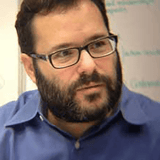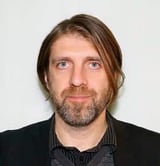Summary
From the pandemic to mass layoffs to burnout, designers have been enduring years of crisis and toxic stress. For some people, living through these kinds of events can be traumatic. Resmaa Menakem defines trauma as "anything that is too much, too soon, too fast, or for too long without being attended to by something reparative or healing." DesignOps professionals and people managers are perfectly positioned to learn about trauma and re-shape their organizations to be spaces for healing, instead of harm. In this talk, participants will understand the prevalence of toxic stress in the workplace, be able to start identifying signs of trauma within themselves, and walk away with three practical ways to create an environment of healing.
Key Insights
-
•
Toxic stress arises when individuals experience too much stress too fast for too long without opportunity to heal.
-
•
Stress triggers physiological fear responses hardwired for survival but are maladaptive in prolonged workplace scenarios.
-
•
Workplace stressors such as bullying, discrimination, layoffs, and glorification of overwork create toxic environments.
-
•
Sustained toxic stress impairs cognitive function, reducing IQ by half and preventing great work.
-
•
Up to 19% of workers exposed to workplace trauma may develop PTSD, making it more common than realized.
-
•
Healing cannot rely solely on individual efforts or therapy but requires changing toxic workplace conditions.
-
•
Polyvagal theory identifies three biological needs for healing: context (certainty), choice (control), and connection (love).
-
•
Simple interventions like clarifying decision rationales, offering choices in meetings, and building admiration improve safety.
-
•
Open conversations within teams about stress and trauma symptoms foster support and cultural change at the smallest unit.
-
•
Knowing a company's layoff history is critical in assessing whether the work environment may induce toxic stress.
Notable Quotes
"Resilience doesn’t come from enduring or tolerating suffering. It comes from healing it and changing the conditions that cause it."
"Our biological bodies are hardwired to prioritize survival above everything else. It’s not your deadline or promotion that matters first."
"Stress and fear go hand in hand; if you feel stress daily, you are feeling fear daily as well."
"Toxic stress is experiencing too much too fast for too long without healing."
"Most workplace conditions create toxic stress expecting performance forever at unsustainable speeds — biologically impossible."
"Toxic stress makes people dumb — it drops our operating IQ by half, preventing creativity and good decisions."
"The antidote to contempt is admiration. Increasing admiration among colleagues is vital to healing."
"Healing doesn’t mean changing yourself; it means changing the environment, the culture, and the stressors."
"Workplace trauma happens in the workplace and can be healed in the workplace."
"You deserve to work in an environment where you feel safe and where your thoughts and opinions matter."
Or choose a question:
















More Videos
"There’s never enough attention you can give to change management in scaling design impact — don’t do it alone."
Standardizing Product Merits for Leaders, Designers, and Everyone
June 15, 2018

"If I don’t have a map, I can’t see patterns or apply context-specific gameplay."
Simon WardleyMaps and Topographical Intelligence (Videoconference)
January 31, 2019

"White supremacy is the belief system of the superiority of whiteness that can embed itself in algorithms."
Sandra CamachoCreating More Bias-Proof Designs
January 22, 2025

"Taking responsibility starts with an apology and seeking regular feedback."
Darian DavisLessons from a Toxic Work Relationship
January 8, 2024

"ChatGPT didn’t have the full context of what was most important to stakeholders, so I had to edit its output before sharing."
Fisayo Osilaja[Demo] The AI edge: From researcher to strategist
June 4, 2024

"Craft cultivates customer satisfaction, loyalty, and even forgiveness when functional issues arise."
Uday GajendarThe Wicked Craft of Enterprise UX
May 13, 2015

"Consistency over business unit efficiency was a design principle to ensure unified interface and language."
Davis Neable Guy SegalHow to Drive a Design Project When you Don’t Have a Design Team
June 10, 2021

"If you come with a big idea, they’ll try to dial you back to the smallest iota you can test first."
Eniola OluwoleLessons From the DesignOps Journey of the World's Largest Travel Site
October 24, 2019

"Most of us in design are very process-oriented, but traditional devops tools are task and issue-centric, making collaboration hard."
Aurobinda Pradhan Shashank DeshpandeIntroduction to Collaborative DesignOps using Cubyts
September 9, 2022
















